Keynote Speaker I
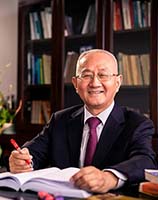
Prof. Yusheng Xue
Academician of Chinese Academy of Engineering
State Grid Electric Power Research Institute (NARI Group Corporation), Nanjing, China
Keynote Lecture: TBD
Abstract: TBD
Biography: Prof. Yusheng Xue received his Ph.D. degree from the University of Liège, Belgium, in 1987, and was elected as an academician of the Chinese Academy of Engineering in 1995. He is an expert in stability theory, power system automation, energy security, and complex systems science. He serves as Editor-in-Chief of Automation of Electric Power Systems and the Journal of Modern Power Systems and Clean Energy (MPCE).
Prof. Xue is the founder of the quantitative stability analysis theory for non-autonomous nonlinear dynamical systems and the inventor of the Extended Equal Area Criterion (EEAC), which solved the long-standing global challenge of quantitatively analyzing transient stability of power systems. The EEAC method remains the only internationally recognized and industrially applied quantitative analysis approach with theoretical proof. He also pioneered China’s spatiotemporal coordinated blackout defense system and designed the WARMAP integrated defense system, which covers over 90% of China’s provincial-level power grids.
In recent years, Prof. Xue proposed the research framework of the Cyber-Physical-Social System of Energy (CPSSE), developed the Sim-CPSS simulation platform, and introduced the Whole Restoration Theory (WRT), establishing new paradigms for interdisciplinary research on energy security. His innovative solutions provide technological support for national and regional low-carbon energy transitions and the realization of carbon neutrality goals.
He has received numerous prestigious honors, including “National Expert with Outstanding Contributions,” “National Model Worker,” the first “Jiangsu Science and Technology Outstanding Contribution Award,” and the Ho Leung Ho Lee Science and Technology Progress Award. He is also the recipient of multiple national awards, including the National Science Conference Award, the National Science and Technology Progress Award (First Class), the National Technological Invention Award (Second Class), and the National Science and Technology Progress Award (Second Class).
Prof. Xue holds over 100 invention patents, has published more than 700 high-quality academic papers, and authored seven academic monographs, including Quantitative Theory of Motion Stability, which won the First Prize for Excellent Science and Technology Books of China and was nominated for the National Book Award.
Keynote Speaker II
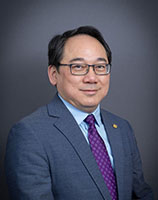
Prof. Chi Yung Chung
IEEE Fellow, 2024-2025 IEEE PES President-Elect and 2026-2027 IEEE PES President
The Hong Kong Polytechnic University, HKSAR, China
Keynote Lecture: TBD
Abstract: TBD
Biography: Prof. C.Y. Chung is the Head of Department, Chair Professor of Power Systems Engineering and Founding Director of Research Centre for Grid Modernisation in the Department of Electrical and Electronic Engineering at the Hong Kong Polytechnic University (HKPolyU), Hong Kong, China. He received the B.Eng. degree (with First Class Honors) and the Ph.D. degree in electrical engineering from The Hong Kong Polytechnic University, China, in 1995 and 1999, respectively. He has worked for the University of Saskatchewan, Saskatoon, SK, Canada; Powertech Labs, Inc., Surrey, BC, Canada; the University of Alberta, Edmonton, AB, Canada; and The Hong Kong Polytechnic University, Hong Kong, China. His research interests include smart grid, micro grid, renewable energy, power system stability/control, planning and operation, applications of artificial intelligence, power markets and electric vehicle charging.
Before rejoining the department, Prof. Chung was the NSERC/SaskPower Senior Industrial Research Chair in Smart Grid Technologies, and the SaskPower Chair in Power Systems Engineering at the University of Saskatchewan. He was a prominent leader for advancing academic activities and applied research in power systems engineering development in the province of Saskatchewan. He led a research team, supported by SaskPower and NSERC of Canada, to conduct cutting-edge and long-term smart grid research for SaskPower and address critical technical issues associated with smart grid technologies and their applications to real power systems. His research work has not only generated 3 US patents, 3 book chapters and over 200 international journal papers, mostly in well-respected IEEE transactions and IET journals, but has also resulted in successful transference of three new commercial software packages developed for power system analysis. Software package “Small Signal Analysis Tool (SSAT)” developed by him is now being used by over 80 power companies and nearly 90 universities worldwide. He has provided consultancy services to both government agencies and well-known private companies. He is a Fellow of CAE, IEEE, CSEE, EIC, IET, HKIE, AAIA and AIIA, and an IEEE PES Distinguished Lecturer. He is also the recipient of the 2021 IEEE Canada P. Ziogas Electric Power Award and 2021 Saskatoon Engineering Society (SES) Educator of the Year Award.…… <personal webpage>
Keynote Speaker III
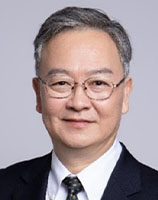
Prof. Mo-Yuen Chow
IEEE Fellow
The Shanghai JiaoTong University, China
Keynote Lecture: Powering Time-Sensitive Applications with Dynamic Energy Management System (D-EMS) in Microgrids
Abstract: This presentation addresses the critical challenges of microgrid energy management in highly dynamic and time-sensitive scenarios, such as disaster relief. These environments are characterized by rapidly evolving conditions, unpredictable disturbances, and strict timing constraints, demanding fast, coordinated, and resilient control strategies. To meet these demands, we have introduced a Dynamic Energy Management System (D-EMS) framework developed by the Advanced Diagnosis, Automation, and Control (ADAC) Lab at Shanghai Jiao Tong University. The proposed solution facilitates real-time coordination of distributed energy resources (DERs) by modeling them as cyber-physical systems and leveraging a hierarchical consensus algorithm for the control of large-scale networked microgrid. This architecture is designed to enhance overall efficiency by accelerating the speed of convergence, improving responsiveness, and supporting scalable and reconfigurable operations. We further explore the integration of digital twin framework for Battery Energy Storage Systems (BESS) into disaster relief microgrids and its application for incipient fault detection and diagnosis to enable real-time monitoring, enhance situational awareness, and improve the resilience of the proposed management strategy under various operating conditions.
Biography: Mo-Yuen Chow earned his degree in Electrical and Computer Engineering from the University of Wisconsin-Madison (B.S., 1982); and Cornell University (M. Eng., 1983; Ph.D., 1987). Dr. Chow has been a Professor at Shanghai Jiao Tong University since 2022. He is an Emeritus Professor in the Department of Electrical and Computer Engineering at North Carolina State University.
Dr. Chow’s recent research focuses on distributed control and management, smart micro-grids, batteries management, and mechatronics systems. Dr. Chow has established the Advanced Diagnosis, Automation, and Control Laboratory. He is an IEEE Fellow, the Co-Editor-in-Chief of IEEE Trans. on Industrial Informatics 2014-2018, Editor-in-Chief of IEEE Transactions on Industrial Electronics 2010-2012. He has received the IEEE Region-3 Joseph M. Biedenbach Outstanding Engineering Educator Award, the IEEE ENCS Outstanding Engineering Educator Award, the IEEE ENCS Service Award, the IEEE Industrial Electronics Society Anthony J Hornfeck Service Award, and the IEEE Industrial Electronics Society Dr.-Ing. Eugene Mittelmann Achievement Award. He is a Distinguished Lecturer of IEEE Industrial Electronics Society.
Keynote Speaker IV
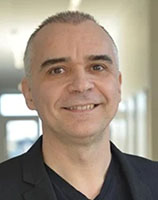
Prof. Josep M. Guerrero
Zhejiang University, China
Keynote Lecture: TBD
Abstract: TBD
Biography: Josep M. Guerrero, received the B.Sc. degree in telecom engineering, M.Sc. degree in electronics engineering, and PhD degree from the Technical University of Catalonia, Barcelona, Spain. Since 2011, he has been a Full Professor with AAU Energy, Aalborg University, Denmark, where he is responsible for the Microgrid Research Program. From 2019, he became a Villum Investigator by the Villum Fonden, which supports the Center for Research on Microgrids (CROM) at Aalborg University, being Prof. Guerrero the founder and Director of the same center. In 2020, he initiated neuroscience studies and research. From 2023 to 2024 he was with the Technical University of Catalonia as an ICREA Research Professor. In 2023 he joined Huanjiang Laboratory as a director of the Center for Renewable Energy and Microgrids, Zhuji, Shaoxing, China. In 2025 he became a Distinguished Senior Researcher at the department of electrical engineering, University of Valladolid, Spain. His research interests are oriented to different microgrid frameworks like energy microgrids, hydrogen and biomass, water micronets, biological systems, seaport microgrids and electrical ships, airport microgrids and more electrical aircrafts, space microgrids and smart medical systems. Prof. Guerrero is an Associate Editor for several IEEE TRANSACTIONS. He has published more than 1,000 journal papers in the fields of microgrids and renewable energy systems, which are cited more than 120,000 times. During nine consecutive years, from 2014 to 2023, he was awarded by Clarivate Analytics as Highly Cited Researcher.
Keynote Speaker V
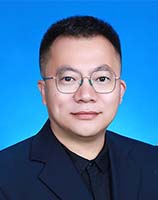
Prof. Chuang Liu
Northeast Electric Power University, China
Keynote Lecture: Topology optimization and control strategy of single-stage isolated single- and three-phase compatible AC-DC converter
Abstract: Bidirectional Isolated AC/DC converters are extensively applied in electric vehicle charging, hybrid AC/DC microgrids, and energy storage systems. Most existing isolated AC/DC converters belong to two-stage structure, which increases the number of power conversion stages and components. In addition, the bulky electrolytic capacitors required between the two stages reduce the power density and reliability. In contrast, single-stage isolated AC/DC converters can simultaneously achieve power factor correction and voltage regulation, eliminating the need for bulky intermediate DC-link electrolytic capacitors. Consequently, they offer potential advantages in terms of power density, cost, and efficiency. Considering the growing demand for high-power capacity in modern energy systems, the development of single-stage isolated single- and three-phase compatible AC-DC converter holds significant practical importance.
Biography: Professor Liu Chuang is a Second-Level Professor and Doctoral Supervisor at Northeast Electric Power University (NEEPU), where he currently serves as Deputy Director of the Academic Affairs Office. He is also the Dean of the China Electric Power Institute at Samarkand International University of Industrial Technology.
Professor Liu is a recipient of the Special Government Allowance of the State Council of China and was selected as a Young Scholar of the Changjiang Scholars Program by the Ministry of Education. He has also been recognized as a Category B Talent of Jilin Province, an Excellent Scientific and Technological Worker in China’s Electric Power Industry, a “Most Beautiful Scientist” of Jilin Province, and a Middle-aged and Young Expert with Outstanding Contributions of Jilin Province. He is a core member of both the National Huang Danian-style Faculty Team and the Changbai Mountain Leading Talent Team.
His main research interests include power electronic equipment and its applications in power systems. He has led more than 30 national and provincial research projects, including projects funded by the National Natural Science Foundation of China, the National Key R&D Program, and the State Grid Corporation of China. Professor Liu has published over 90 academic papers and holds 56 authorized national invention patents.
As the first contributor, he has received the First Prize for Technological Invention and the Second Prize for Scientific and Technological Progress of Jilin Province. He also serves as Vice Chairman of the China Committee of the World Young Earth Scientists (YES) Network, Council Member of the Chinese Society for Electrical Engineering, and Co-Convenor of the CIGRE Working Group on Medium-Voltage DC Systems.
© PSRE 2025 | Yazhou Bay Science and Technology City, Hainan | All rights reserved.